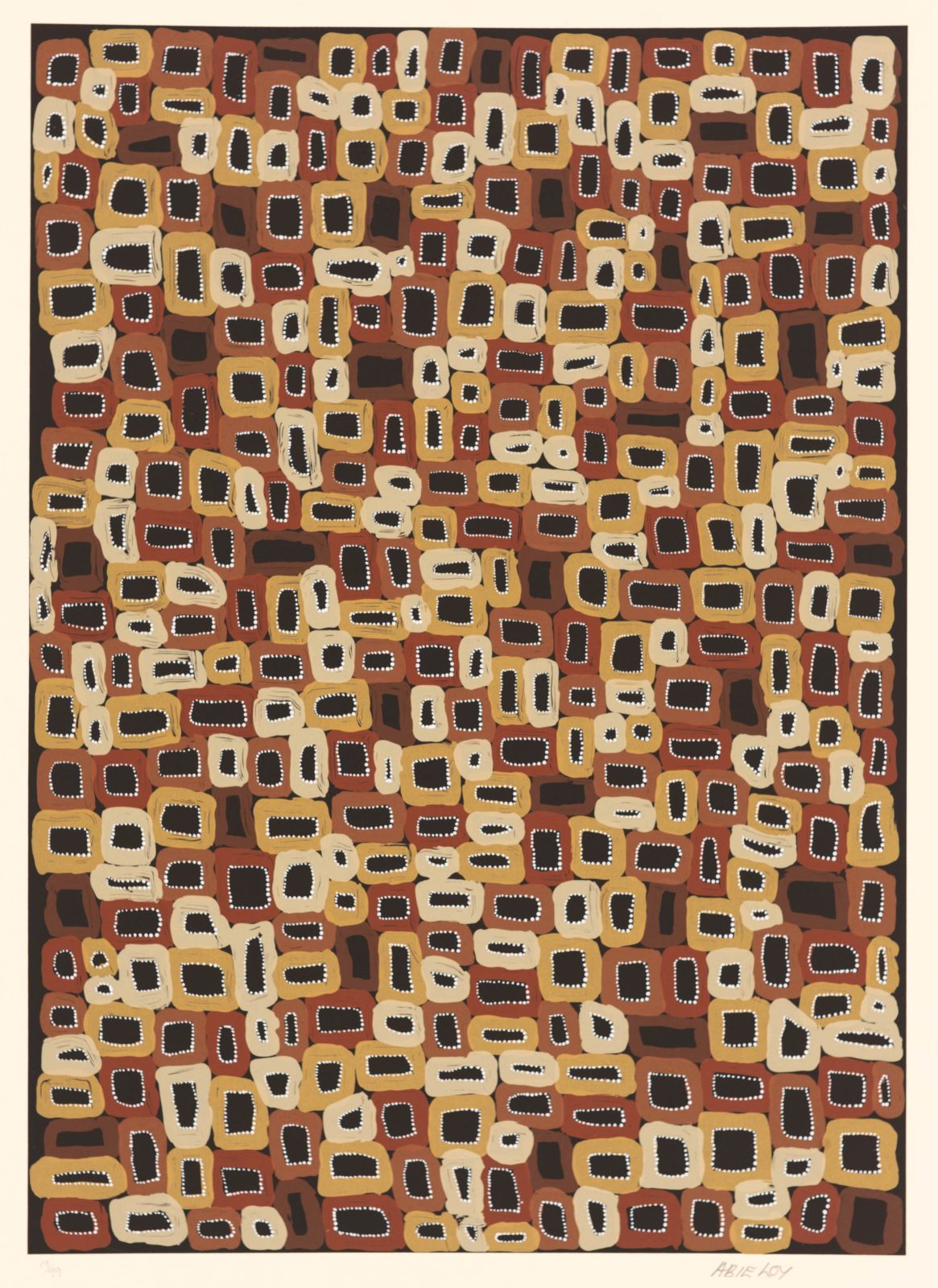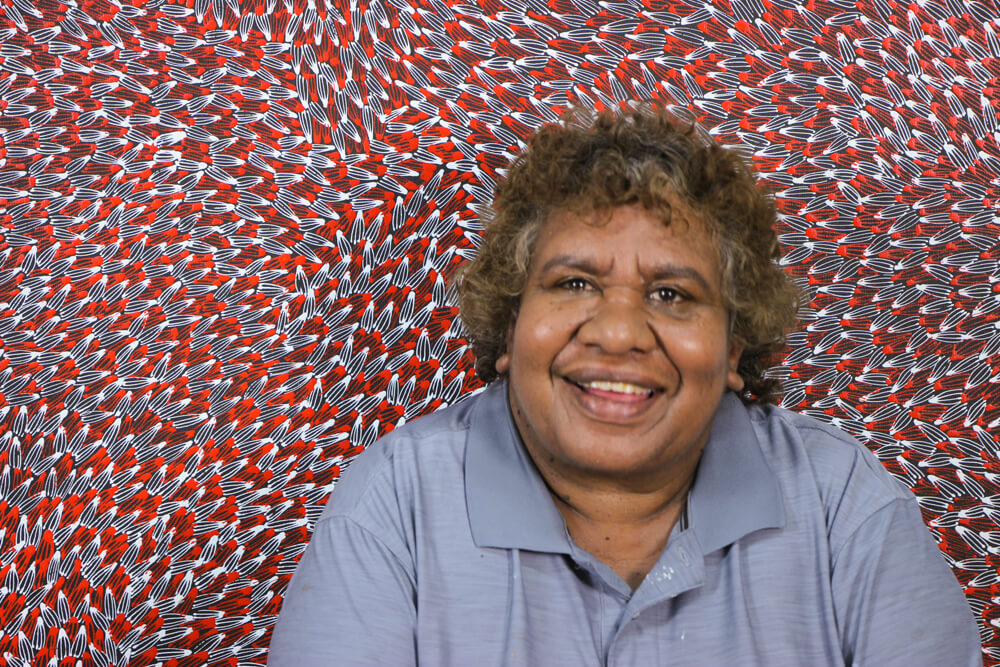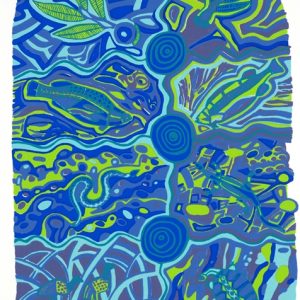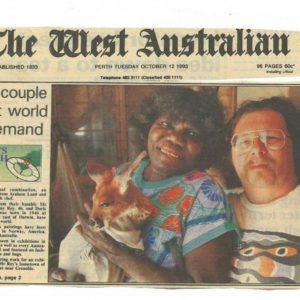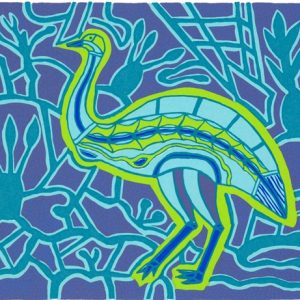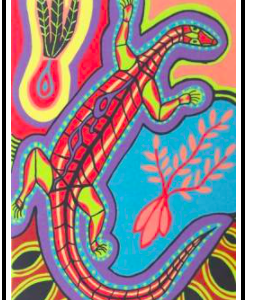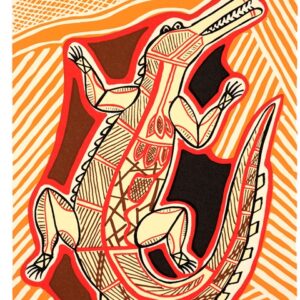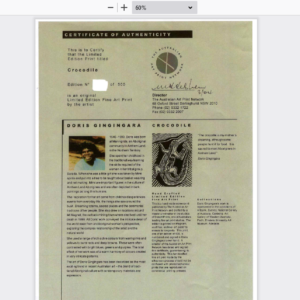Description
Details
- Type: Screenprint
- Edition: 99
- Paper: Magnani 350 gsm
- Size: 595 x 425 mm (image), 760 x 560 (paper)
- Printer: Simon White, Basil Hall Editions Darwin December 2006
Story
In Australian Aboriginal culture ceremonies are the focal points in life of the community. they are held for different purposes and are integral to the happiness and wellbeing of the people. The participants dance and celebrate to acknowledge the fertility of the land, the health of the people, the initiation of young men or to mourn the passing of a loved one. They would smear their bodes with animal fat and would then trace certain ceremonial designs on the top half of their body using a variety of pigments ground from charcoal and yellow and red ochre. Kin would gather together to sing and dance led by the most senior women of the clan/language group. Some ceremonies were specifically held by women and not attended by men. Men also had dedicated ceremonies. Both were equally important in maintaining balance in the world.
Artist Biography: Abie Loy Kemarre
Abie developed her fine skills as an artist at an early age working closely with her famous grandmother Kathleen Petyarre. Kathleen taught Abie the techniques to create paintings where the delicate dotting created a moving surface of colour that highlighted the structure of her paintings.
Born in 1972, Abie belongs to the Eastern Anmatyerre language group and identifies with her traditional country at Iylenty or Mosquito Bore. She is the eldest of five children, and was born on Utopia station, about 270km north east of Alice Springs in the Northern Territory. Abie is the daughter of Margaret Loy Pula (who won the Wynne Prize in 2012) and Ray Loy Pula. Her aunt is the celebrated artist, Gloria Petyarre and her Grandmother was the equally respected senior woman artist, Kathleen Petyarre.
Abie began painting at 19 years old. She was mentored by her grandmother Kathleen Petyarre, who taught her the methodology of using details and tiny shimmering dotting to create complex optical effects.
Over the years, Abie further developed her skills as an artist to become an extraordinarily talented colourist and designer, experimenting with elements of line, colour and form.
Abie’s work is held in Australian public collections including National Gallery of Victoria, Art Gallery of South Australia, and Adelaide University Art Collection. She is represented in major private collections including Kelton Foundation, Levi-Kaplan Collection, Kerry Stokes Collection, Aboriginal & Torres Strait Islander Commission Collection and Festival of Arts Foundation Collection.
Abie now spends her time between Mosquito Bore with her family, Lake Nash (Alpurrurulam) and Alice Springs.

